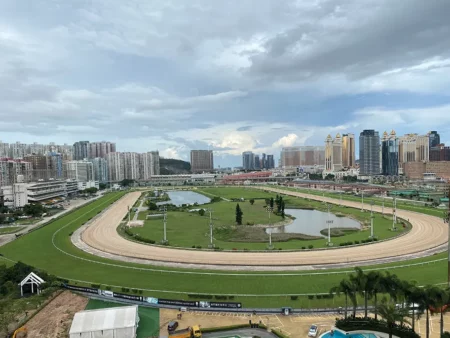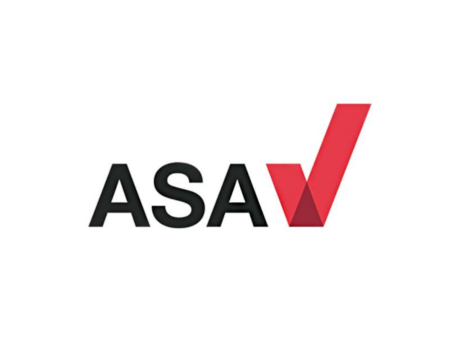The recent disciplinary action taken by The Stock Exchange of Hong Kong (HKEX) against China lottery business operator China Ecotourism Group has brought to light significant concerns regarding problematic lending transactions and governance over material loans. In a concerted effort to uphold transparency and protect shareholder interests, HKEX regulators have initiated disciplinary measures to address these issues effectively.
Unveiling the Investigation: Insights from HKEX and SFC
With the assistance of the Securities and Futures Commission (SFC), HKEX’s investigation has revealed alarming evidence concerning the allocation of loan proceeds and subscription funds within China Ecotourism Group. Specifically, evidence suggests that portions of loan proceeds were redirected to individuals and/or entities associated with executive directors Ms. Chan Tan Na Donna and Ms. Lau Ting. Furthermore, subscription funds intended for investment were diverted to personal accounts, raising suspicions of undisclosed arrangements and misappropriation of funds.
Lack of Transparency and Misuse of Funds: Key Findings
Despite claims that loans were intended to support the development of the company’s lottery business in China and the Philippines, there is a lack of evidence indicating that funds were utilized for their intended purpose. Additionally, all borrowers defaulted on their obligations, casting further doubt on the legitimacy of the transactions. Moreover, an investment aimed at advancing blockchain technology in the lottery business failed to materialize as planned, with funds being redirected at the instruction of Ms. Kang, a key figure in the company.
Risk and Oversight Failures: Implications for Shareholders
The loans and investment in question lacked adequate due diligence, risk analysis, and credit assessment, posing a significant risk to the company’s assets and financial stability. Substantial impairment losses totaling HK$473.1 million were recognized for the financial years ended 2018 and 2019, underscoring the severity of the situation. Furthermore, the failure of the board to ensure proper internal controls and risk management systems has jeopardized shareholder interests, highlighting the need for robust oversight and controls to protect shareholder value.
Emphasizing the Importance of Governance and Oversight
The disciplinary action taken by HKEX serves as a stark reminder of the critical importance of governance and oversight in maintaining the integrity of listed companies. The lack of transparency and accountability observed in the lending practices of China Ecotourism Group underscores the need for stringent regulatory measures to safeguard shareholder interests and maintain market integrity. Moving forward, it is imperative for companies to implement robust internal controls and risk management systems to prevent similar incidents from occurring in the future.
A Call for Transparency and Accountability
As stakeholders in the financial markets, it is incumbent upon regulators, boards of directors, and executive management to uphold the highest standards of transparency and accountability. The disciplinary action taken by HKEX against China Ecotourism Group sends a clear message that misconduct and mismanagement will not be tolerated, and those responsible will be held accountable for their actions.
Conclusion: Upholding Integrity in Financial Markets
The disciplinary action taken by HKEX against China Ecotourism Group underscores the importance of governance, transparency, and accountability in the financial markets. By addressing problematic lending transactions and improving governance over material loans, regulators aim to protect shareholder interests and maintain market integrity. It is essential for all stakeholders to work together to uphold the highest standards of integrity and ensure the long-term sustainability of the financial markets.
FAQs: Understanding HKEX’s Disciplinary Action Against China Ecotourism Group
1. What is the recent disciplinary action taken by HKEX against China Ecotourism Group, and what prompted this action?
The recent disciplinary action by The Stock Exchange of Hong Kong (HKEX) against China Ecotourism Group stems from concerns regarding problematic lending transactions and governance over material loans. HKEX regulators initiated this action to address issues related to transparency and shareholder protection effectively.
2. What role did the Securities and Futures Commission (SFC) play in the investigation conducted by HKEX?
The Securities and Futures Commission (SFC) assisted HKEX in its investigation into China Ecotourism Group. Together, they uncovered evidence suggesting misallocation of loan proceeds and subscription funds, raising suspicions of undisclosed arrangements and misappropriation of funds involving executive directors and other individuals.
3. What were some key findings of the investigation regarding the utilization of loan proceeds and subscription funds within China Ecotourism Group?
The investigation revealed that loan proceeds intended to support the company’s lottery business were redirected to individuals and entities associated with executive directors. Additionally, subscription funds meant for investment purposes were diverted to personal accounts, casting doubt on the legitimacy of the transactions and raising concerns about fund misappropriation.
4. How did the lack of transparency and misuse of funds impact the financial stability of China Ecotourism Group?
The lack of transparency and misuse of funds, including the diversion of loan proceeds and subscription funds, posed significant risks to the company’s assets and financial stability. Substantial impairment losses were recognized for the financial years ended 2018 and 2019, indicating the severity of the situation and its impact on the company’s financial health.
5. What were the implications of the disciplinary action taken by HKEX for China Ecotourism Group and its stakeholders?
The disciplinary action taken by HKEX against China Ecotourism Group highlighted the importance of governance, transparency, and accountability in the financial markets. It underscored the need for robust internal controls and risk management systems to prevent similar incidents and protect shareholder interests.
6. How can companies like China Ecotourism Group improve governance and oversight to prevent future misconduct?
Companies can improve governance and oversight by implementing robust internal controls, conducting thorough due diligence, and enhancing transparency in their operations. It is crucial for boards of directors and executive management to uphold the highest standards of integrity and accountability to maintain market integrity and protect shareholder value.
7. What message does the disciplinary action against China Ecotourism Group send to other listed companies and stakeholders in the financial markets?
The disciplinary action against China Ecotourism Group sends a clear message that misconduct and mismanagement will not be tolerated in the financial markets. It serves as a reminder to all stakeholders of the importance of upholding integrity, transparency, and accountability to ensure the long-term sustainability of the financial markets.
8. How can regulatory measures like those taken by HKEX contribute to maintaining market integrity and protecting investor interests?
Regulatory measures like those taken by HKEX play a vital role in maintaining market integrity and protecting investor interests. By addressing issues such as problematic lending transactions and governance over material loans, regulators help ensure transparency, fairness, and accountability in the financial markets.
9. What steps can investors take to safeguard their investments in light of incidents like those involving China Ecotourism Group?
Investors can safeguard their investments by conducting thorough due diligence, diversifying their portfolios, and staying informed about regulatory developments and company disclosures. It is essential to remain vigilant and proactive in monitoring investments to mitigate risks and protect capital.


















